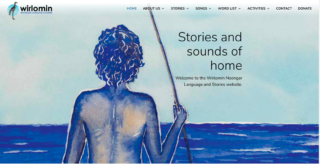Indigenous Culture and Digital Technologies

Indigenous culture in Australia and elsewhere is communicated using contemporary media (including online platforms, software, apps, mobile devices and social media) and popular-cultural practices (including sport and entertainment), as well as by traditional forms (song, story, ceremony, etc.). This program explores how Indigenous people and groups can make practical use of the affordances of contemporary digital media and technology to consolidate and produce culture and knowledge, not only to find new ways to communicate Indigenous issues internally, but also to extend and improve understanding of those issues among wider populations.
Program leader
John Curtin Distinguished Professor Kim Scott, Professor of Writing, MCASI, Curtin University
Researchers
Dr Cassie Lynch, Research Assistant
Professor Reena Tiwari, School of Design and Built Environment
Projects
Media and Indigeneity
Indigenous Culture and Digital Technology
ARC grants
2022-25 ARC Future Fellowship; Narrative, Technologies and Wirlomin Moorditj-abiny (FT210100857)
2017-2019 ARC Discovery ‘Mobilising song archives to nourish an endangered Aboriginal language’, with Dr Clint Bracknell and Professor Linda Barwick. University of Sydney (IN170100022)
ARC Indigenous Discovery (2014-16). “Noongar Kaatdijin Bidi / Noongar Knowledge Networks; or, Why is there no Noongar Wikipedia?” (610, 000 AUD, administered by UWA), led by Indigenous researchers Len Collard (UWA) and Kim Scott (Curtin), co-investigators John Hartley and Niall Lucy (Curtin).
ARC Linkage (2014-16). “Participation versus performance: Managing (dis)ability, gender and cultural diversity in junior sport” (200, 000 AUD, administered by Victoria University). Principal investigator Sean Gorman.
ARC Indigenous Discovery (2012-2014). “Developing narratives from language and stories indigenous to the south coast of Western Australia”. (103, 000 AUD). Principal investigator Kim Scott.
